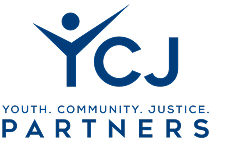Consultation
Trial Consulting
Trial Consulting: Voir Dire and Jury Selection
Voir dire literally means “speak the truth.” In court, it refers to a process of determining whether a juror can serve fairly and impartially, i.e., jury selection.
MEANINGFUL VOIR DIRE
Creates an atmosphere of trust & confidence, helping jurors feel as though they’re engaging in a genuine and meaningful conversation as opposed to an interrogation
“Sets the stage” by explaining the process and emphasizing honesty and candor
Gets jurors talking with open-ended, reflective questions
Attends to jurors’ nonverbal communication and group dynamics
Looks for leadership (e.g., forepersons)
Rich conversations during voir dire facilitate the analysis of jurors’:
1. Backgrounds
What are jurors’ occupations, educational backgrounds, socio-economic statuses, media viewing habits and internet footprints, among other characteristics, and how may those characteristics affect jurors’ decisions in the case?
2. Experiences
What experiences do jurors bring to the case? Have they been a victim of a crime or involved in a prior lawsuit? What else could affect how they view the case, evidence, witnesses and parties?
3. Opinions, Beliefs, and Values
As decisionmakers, jurors’ opinions, beliefs, and values are key to voir dire. A skilled psychologist can ask layered questions utilizing attunement, emotional regulation, cultural humility, and nonverbal cues. Such questions will help identify the filter or framework through which jurors will view the case.
- Dr. Gerchow co-authored, “Complicating the Thinking of Trainee Consultants in Consultee-Centered Consultation” in The International Handbook of Consultation in Educational Settings (2017).
- Dr. Gerchow’s intrapersonal and interpersonal attunement, developed over years of assessing and providing direct services to individuals in crisis, incarcerated, or at re-entry, is an asset to assembling fair, balanced juries.
YCJ Partner’s Consulting Services
Jury Selection
We analyze jurors’ responses, conducting follow-up questioning as needed, and advising on cause challenges and the prioritization of peremptory strikes. Once the jury is seated, we provide an assessment of the panel as a whole, along with a summary of each juror’s demographics and case-related experiences. Additionally, we offer recommendations for case presentation and witness preparation based on the seated jury’s unique characteristics.
Voir Dire Development
Before trial, we assist by drafting voir dire
questions carefully designed to uncover jurors’ attitudes and experiences, helping to identify key candidates for strikes. We can also review your proposed questions and offer guidance on crafting effective follow-ups.
Juror Questionnaires
When permissible, juror questionnaires offer a strategic advantage, allowing for deeper insights into juror attitudes and experiences without influencing the entire panel with individual responses. We can design the questionnaire and assist in making a compelling case to the court for its use. After evaluating completed questionnaires, we rank jurors, recommend follow-up questions, and provide guidance on peremptory and cause challenges.
Dr. Gerchow: Clinical and consultation expertise for effective and empathetic legal strategies.
Christine Gerchow, Ph.D., QME, is a seasoned psychologist with over ten years of clinical and administrative experience in high-stakes, high-pressure environments, spanning the corrections and workers’ compensation systems. Dr. Gerchow received rigorous assessment training at UC Berkeley, where she also lectured on consultation practices. She possesses a unique blend of skills in emotional regulation, interviewing techniques, and interpersonal dynamics, making her an exceptional trial and voir dire consultant.


